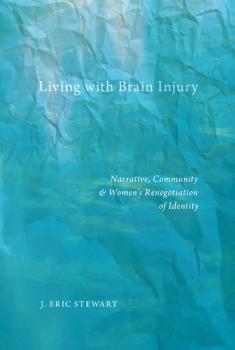ТОП просматриваемых книг сайта:
Qualitative Studies in Psychology
Скачать книги из серии Qualitative Studies in PsychologyАннотация
Violent Accounts presents a compelling study of how ordinary people commit extraordinary acts of violence and how perpetrators and victims manage in the aftermath. Grounded in extensive, qualitative analysis of perpetrator testimony, the volume reveals the individual experiences of perpetrators as well as general patterns of influence that lead to collective violence. Drawing on public testimony from the amnesty hearings of the South African Truth and Reconciliation Commission, the book interweaves hundreds of hours of testimony from seventy-four violent perpetrators in apartheid South Africa, including twelve major cases that involved direct interactions between victims and perpetrators. The analysis of perpetrator testimony covers all tiers on the hierarchy of organized violence, from executives who translated political doctrine into general strategies, to managers who translated these general strategies into specific plans, to the staff—the foot soldiers—who carried out the destructive plans of these managers. Vivid and accessible, Violent Accounts is a work of innovative scholarship that transcends the particulars of the Truth and Reconciliation Commission to reveal broader themes and unexpected insights about perpetrators of collective violence, the confrontations between victims and perpetrators in the aftermath of this violence, the reality of multiple truths, the complexities of reconciliation, and lessons of restorative justice.
Аннотация
Teens in America’s inner cities grow up and construct identities amidst a landscape of relationships and violence, support and discrimination, games and gangs. In such contexts, local environments such as after-school programs may help youth to mediate between social stereotypes and daily experience, or provide space for them to consider themselves as contributing members of a community.Based on four years of field work with both the adolescent members and staff of an inner-city youth organization in a large Midwestern city, Pride in the Projects examines the construction of identity as it occurs within this local context, emphasizing the relationships within which identities are formed. Drawing on research in psychology, sociology, education, and race and gender studies, the volume highlights the inadequacies in current identity development theories, expanding our understanding of the lives of urban teens and the ways in which interpersonal connections serve as powerful contexts for self-construction. The adolescents’ stories illuminate how they find ways to discover who they are, and who they would like to be — in positive and healthy ways — in the face of very real obstacles. The book closes with implications for practice, alerting scholars, educators, practitioners, and concerned citizens of the positive developmental possibilities inherent in youth settings when we pay attention to the voices of youth.
Информация о книге
Автор произведения Nancy L. Deutsch
Аннотация
Psychotherapists have an ethical requirement to inform clients about their treatment methods, alternative treatment options, and alternative conceptions of their problem. While accepting the basis for this «informed consent» requirement, therapists have traditionally resisted giving too much information, arguing that exposure to alternative therapies could cause confusion and distress. The raging debates over false/recovered memory syndrome and the larger move towards medical disclosure have pushed the question to the fore: how much information therapists should provide to their clients? In Negotiating Consent in Psychotherapy , Patrick O'Neill provides an in-depth study of the ways in which therapists and clients negotiate consent. Based on interviews with 100 therapists and clients in the areas of eating disorders and sexual abuse, the book explores the tangle of issues that make informed consent so difficult for therapists, including what therapists believe should be part of consent and why; how they decide when consent should be renegotiated; and how clients experience this process of negotiation and renegotiation.
Аннотация
When Nancy was in her late twenties, she began having blinding headaches, tunnel vision, and dizziness, which led to the discovery of an abnormality on her brain stem. Complications during surgery caused serious brain damage, resulting in partial paralysis of the left side of her body and memory and cognitive problems. Although she was constantly evaluated by her doctors, Nancy’s own questions and her distress got little attention in the hospital. Later, despite excellent job performance post-injury, her physical impairments were regarded as an embarrassment to the “perfect” and “beautiful” corporate image of her employer. Many conversations about brain injury are deficit-focused: those with disabilities are typically spoken about by others, as being a problem about which something must be done. In Living with Brain Injury, J. Eric Stewart takes a new approach, offering narratives which highlight those with brain injury as agents of recovery and change in their own lives. Stewart draws on in-depth interviews with ten women with acquired brain injuries to offer an evocative, multi-voiced account of the women’s strategies for resisting marginalization and of their process of making sense of new relationships to self, to family and friends, to work, and to community. Bridging psychology, disability studies, and medical sociology, Living with Brain Injury showcases how—and on what terms—the women come to re-author identity, community, and meaning post-injury.
Аннотация
Schizophrenia is widely considered the most severe and disabling of the mental illnesses. Yet recent research has demonstrated that many people afflicted with the disorder are able to recover to a significant degree. Living Outside Mental Illness demonstrates the importance of listening to what people diagnosed with schizophrenia themselves have to say about their struggle, and shows the dramatic effect this approach can have on clinical practice and social policy. It presents an in-depth investigation, based on a phenomenological perspective, of experiences of illness and recovery as illuminated by compelling first-person descriptions.This volume forcefully makes the case for the utility of qualitative methods in improving our understanding of the reasons for the success or failure of mental health services. The research has important clinical and policy implications, and will be of key interest to those in psychology and the helping professions as well as to people in recovery and their families.
Аннотация
When gay couples become parents, they face a host of questions and issues that their straight counterparts may never have to consider. How important is it for each partner to have a biological tie to their child? How will they become parents: will they pursue surrogacy, or will they adopt? Will both partners legally be able to adopt their child? Will they have to hide their relationship to speed up the adoption process? Will one partner be the primary breadwinner? And how will their lives change, now that the presence of a child has made their relationship visible to the rest of the world? In Gay Dads: Transitions to Adoptive Fatherhood, Abbie E. Goldberg examines the ways in which gay fathers approach and negotiate parenthood when they adopt. Drawing on empirical data from her in-depth interviews with 70 gay men, Goldberg analyzes how gay dads interact with competing ideals of fatherhood and masculinity, alternately pioneering and accommodating heteronormative “parenthood culture.” The first study of gay men's transitions to fatherhood, this work will appeal to a wide range of readers, from those in the social sciences to social work to legal studies, as well as to gay-adoptive parent families themselves.
Аннотация
Since the terrorist attacks of September 11, 2001, and the subsequent “war on terror,” growing up Muslim in the U.S. has become a far more challenging task for young people. They must contend with popular cultural representations of Muslim-men-as-terrorists and Muslim-women-as-oppressed, the suspicious gaze of peers, teachers, and strangers, and police, and the fierce embodiment of fears in their homes.With great attention to quantitative and qualitative detail, the authors provide heartbreaking and funny stories of discrimination and resistance, delivering hard to ignore statistical evidence of moral exclusion for young people whose lives have been situated on the intimate fault lines of global conflict, and who carry international crises in their backpacks and in their souls.The volume offers a critical conceptual framework to aid in understanding Muslim American identity formation processes, a framework which can also be applied to other groups of marginalized and immigrant youth. In addition, through their innovative data analytic methods that creatively mix youth drawings, intensive individual interviews, focused group discussions, and culturally sensitive survey items, the authors provide an antidote to “qualitative vs. quantitative” arguments that have unnecessarily captured much time and energy in psychology and other behavioral sciences. Muslim American Youth provides a much-needed road map for those seeking to understand how Muslim youth and other groups of immigrant youth negotiate their identities as Americans.
Информация о книге
Автор произведения Michelle Fine
Mastering the Semi-Structured Interview and Beyond - Anne Galletta
Qualitative Studies in PsychologyАннотация
Mastering the Semi-Structured Interview and Beyond offers an in-depth and captivating step-by-step guide to the use of semi-structured interviews in qualitative research. By tracing the life of an actual research project–an exploration of a school district's effort over 40 years to address racial equality–as a consistent example threaded across the volume, Anne Galletta shows in concrete terms how readers can approach the planning and execution of their own new research endeavor, and illuminates unexpected real-life challenges they may confront and how to address them. The volume offers a close look at the inductive nature of qualitative research, the use of researcher reflexivity, and the systematic and iterative steps involved in data collection, analysis, and interpretation. It offers guidance on how to develop an interview protocol, including the arrangement of questions and ways to evoke analytically rich data. Particularly useful for those who may be familiar with qualitative research but have not yet conducted a qualitative study, Mastering the Semi-Structured Interview and Beyond will serve both undergraduate and graduate students as well as more advanced scholars seeking to incorporate this key methodological approach into their repertoire.
Аннотация
Behaviorism has been the dominant force in the creation of modern American psychology. However, the unquestioned and unquestioning nature of this dominance has obfuscated the complexity of behaviorism. Control serves as an antidote to this historical myopia, providing the most comprehensive history of behaviorism yet written. Mills successfully balances the investigation of individual theorists and their contributions with analysis of the structures of assumption which underlie all behaviorist psychology, and with behaviorism's role as both creator and creature of larger American intellectual patterns, practices, and values. Furthermore, Mills provides a cogent critique of behaviorists' narrow attitudes toward human motivation, exploring how their positivism cripples their ability to account for the unobservable, inner factors that control behavior. Control 's blend of history and criticism advances our understanding not only of behaviorism, but also the development of social science and positivism in twentieth-century America.









